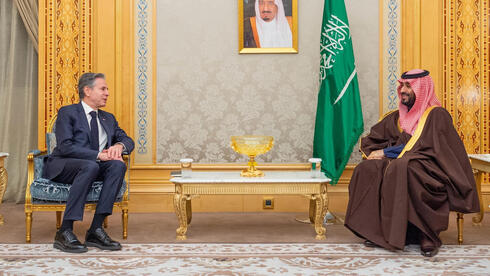Saudi Arabia Abandons Defense Treaty with US in Favor of Modest Military Cooperation Agreement
Saudi Arabia has abandoned its pursuit of a comprehensive defense treaty with the United States in exchange for normalizing relations with Israel, moving instead towards a more modest military cooperation agreement.
The initial plan was for Saudi Arabia to recognize Israel in return for a public commitment to a two-state solution, but Crown Prince Mohammed bin Salman has now made recognition of Israel conditional on concrete steps towards creating a Palestinian state. The decision comes as public anger in Saudi Arabia and the Middle East over Israel’s military actions in Gaza reaches a fever pitch.
The United States is eager to secure a deal, with President Joe Biden’s administration hoping to finalize an agreement before he leaves office in January. However, the path forward is complicated, with Israeli Prime Minister Benjamin Netanyahu facing strong opposition at home to any concessions to the Palestinians.
A scaled-down cooperation agreement is now being discussed, focusing on joint military exercises, partnership between U.S. and Saudi defense firms, and promotion of Saudi investment in advanced technologies, including drone defense. The U.S. would also increase its presence in Riyadh through training, logistics, and cyber security support, with the possibility of deploying a Patriot missile battalion to enhance missile defense and integrated deterrence.
However, the deal would not be a binding mutual defense treaty, which is contingent on Saudi Arabia recognizing Israel. Saudi officials are also resistant to articles related to human rights and have refused to sign a 123 Agreement with the U.S. that would deny them the right to nuclear enrichment.
The Palestinians are also concerned that Trump’s plan to resolve the Israeli-Palestinian conflict, which excludes any provisions for Palestinian statehood or sovereignty, could ultimately persuade the Saudi crown prince to support the plan. The future of the peace process is uncertain, with officials worried that Trump’s plan could provide a significant obstacle to achieving a two-state solution. As the Middle East continues to navigate this complex landscape, the future of the peace process and the potential for a comprehensive agreement remain uncertain.

